The countries made themselves independent from Spain, but only changed owners, who stayed in positions of power were the criollos, the Spanish descendants who were the new administrators of power and wealth in the country.
BOCAFLOJAThere are situations in which a smile, a laugh, a greeting are racist exercises.
More Bocafloja Quotes
-





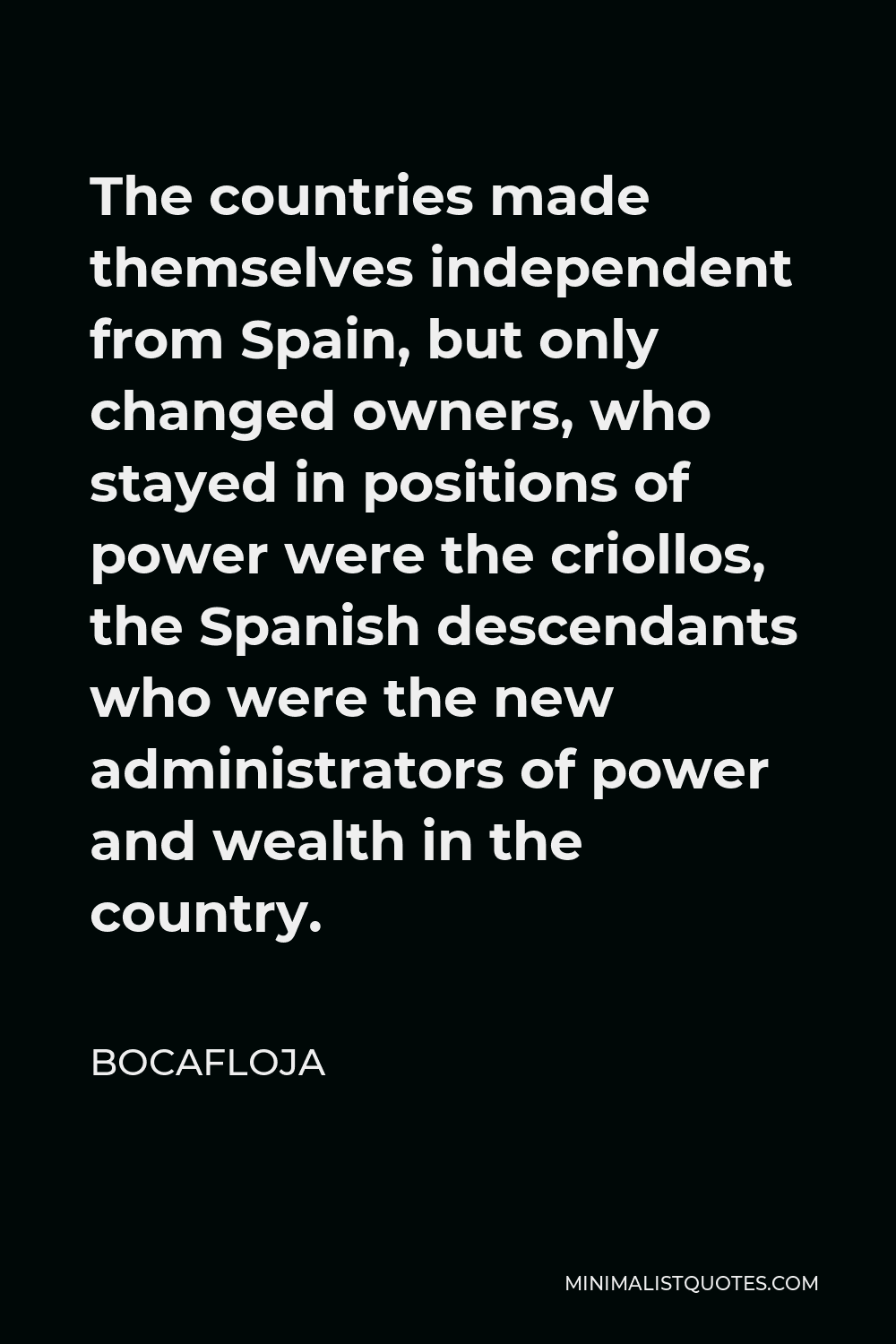
-





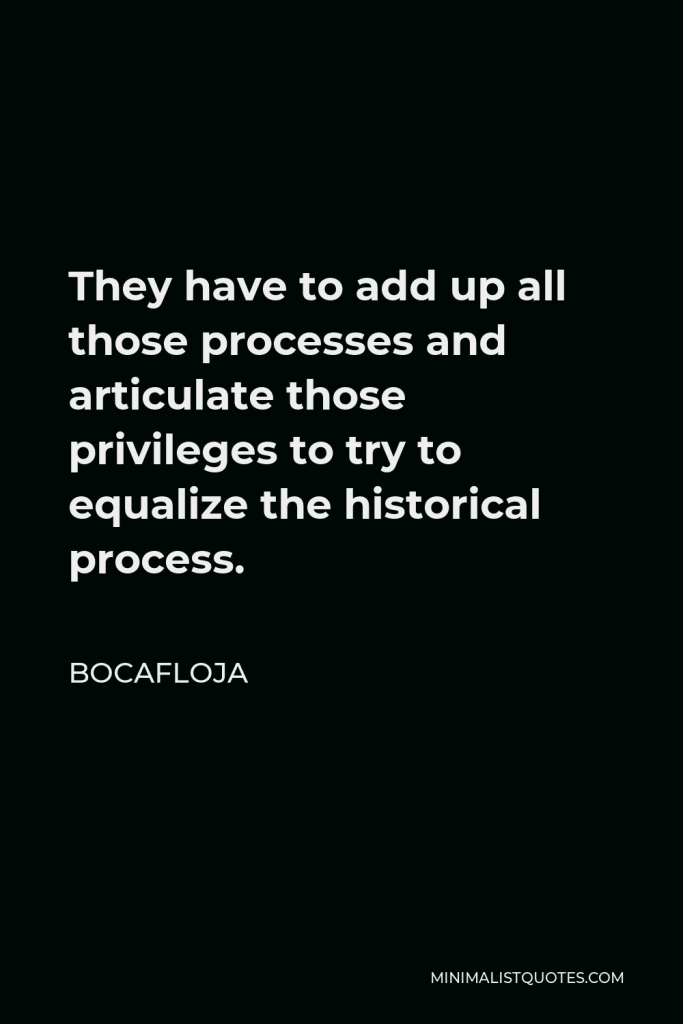

They have to add up all those processes and articulate those privileges to try to equalize the historical process.
BOCAFLOJA -







On the aesthetic level, decolonized music presents itself as a direct antagonist to the traditional values promoted by the culture industry.
BOCAFLOJA -







I believe that also it should be stressed and made clear that our antagonistic position is not to say “I don’t like whites” for the simple fact of not liking white people.
BOCAFLOJA -





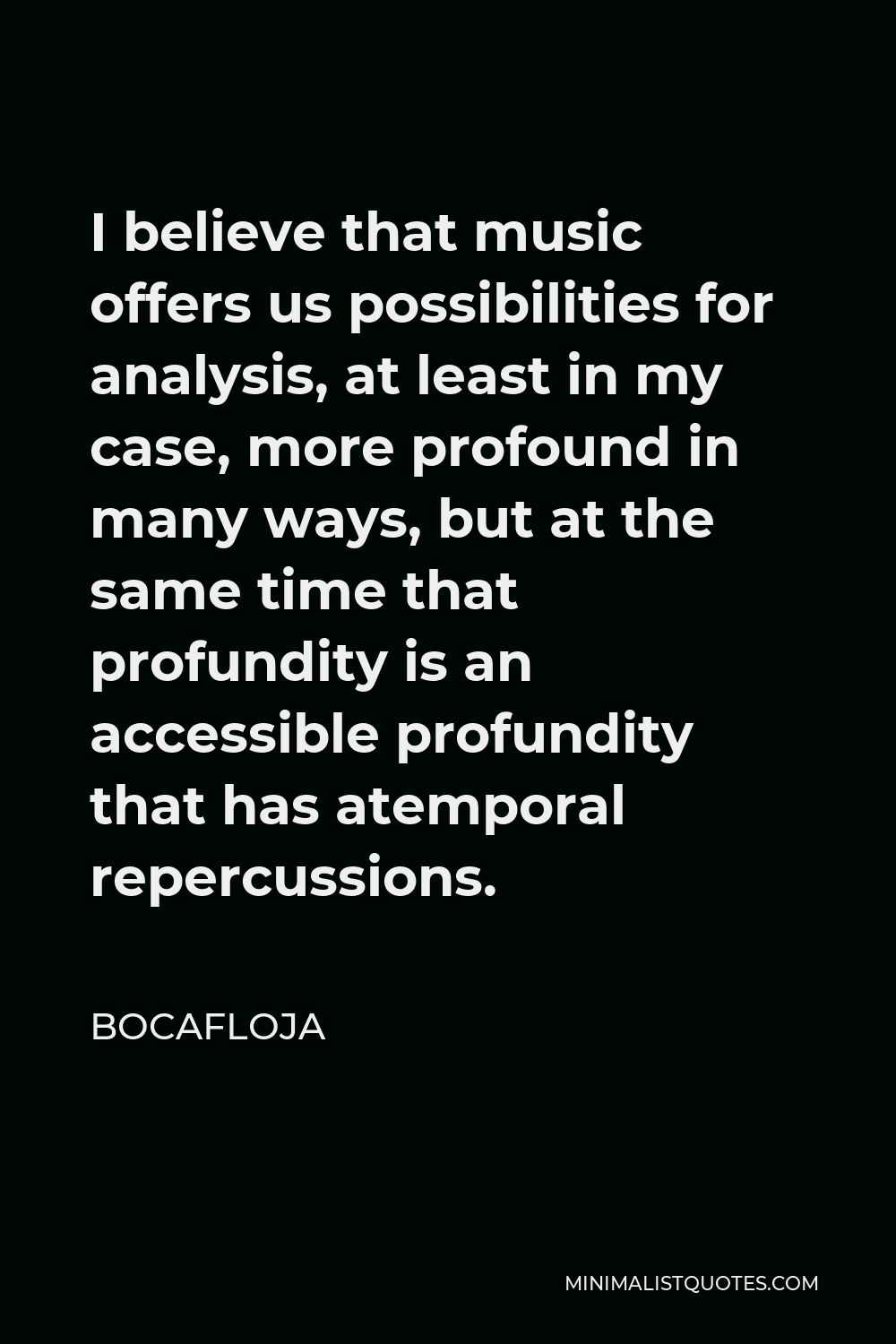
I believe that music offers us possibilities for analysis, at least in my case, more profound in many ways, but at the same time that profundity is an accessible profundity that has atemporal repercussions.
BOCAFLOJA -







I believe that we have to play the game of strategy, and understand how to move the pieces because this is how the political spectrum functions.
BOCAFLOJA -





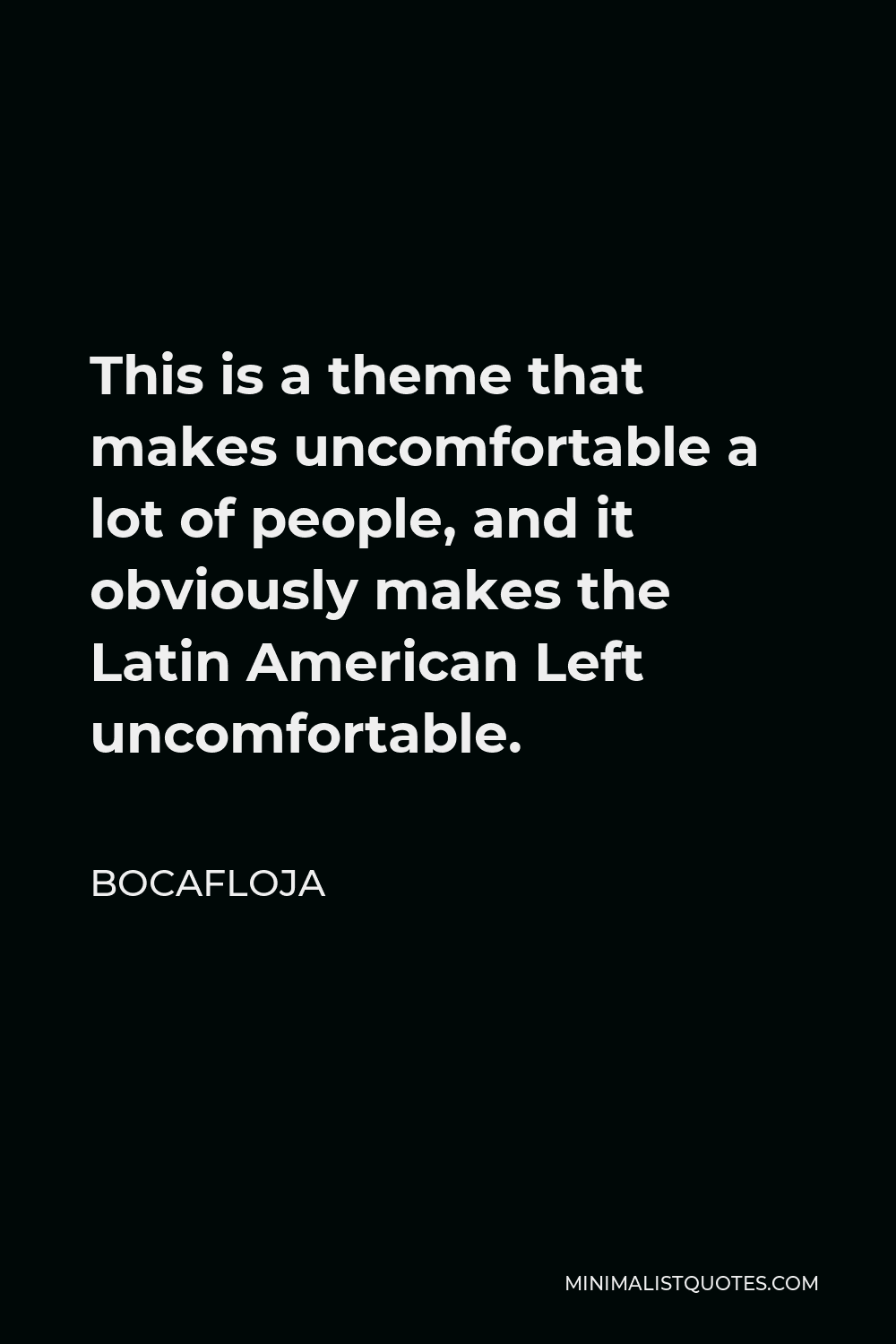
This is a theme that makes uncomfortable a lot of people, and it obviously makes the Latin American Left uncomfortable.
BOCAFLOJA -






I understand that there are moments they disassociate, but in the end they are things that go walking together practically all the time.
BOCAFLOJA -






Analyses that through musicality would be able to connect with people who don’t necessarily have the energy or wish in any exact moment to connect to well-read or critical analysis.
BOCAFLOJA -





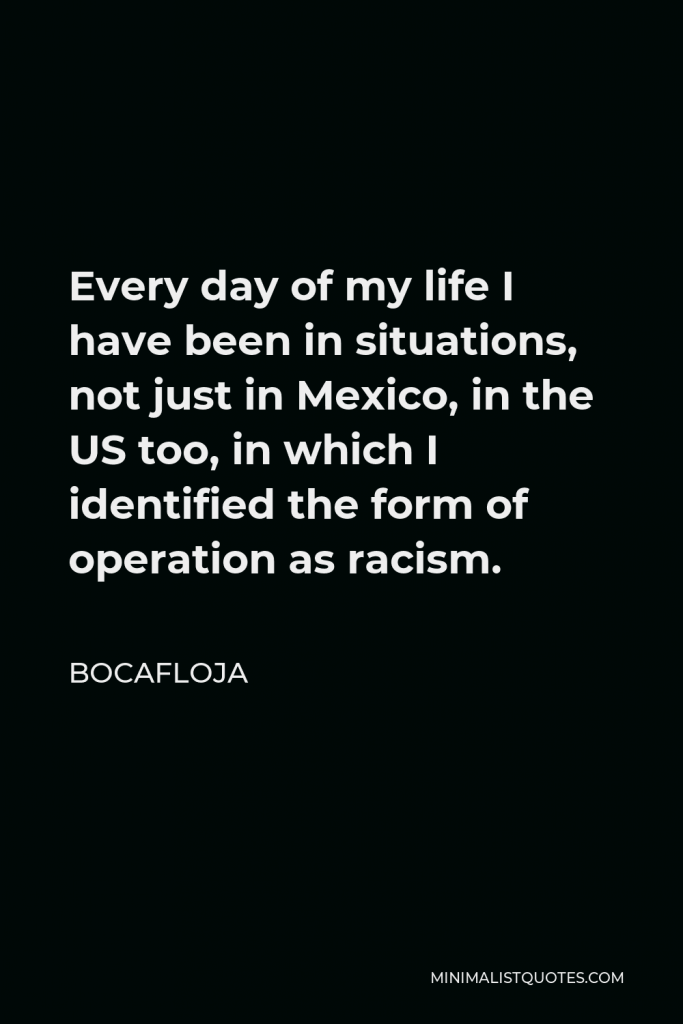

Every day of my life I have been in situations, not just in Mexico, in the US too, in which I identified the form of operation as racism.
BOCAFLOJA -





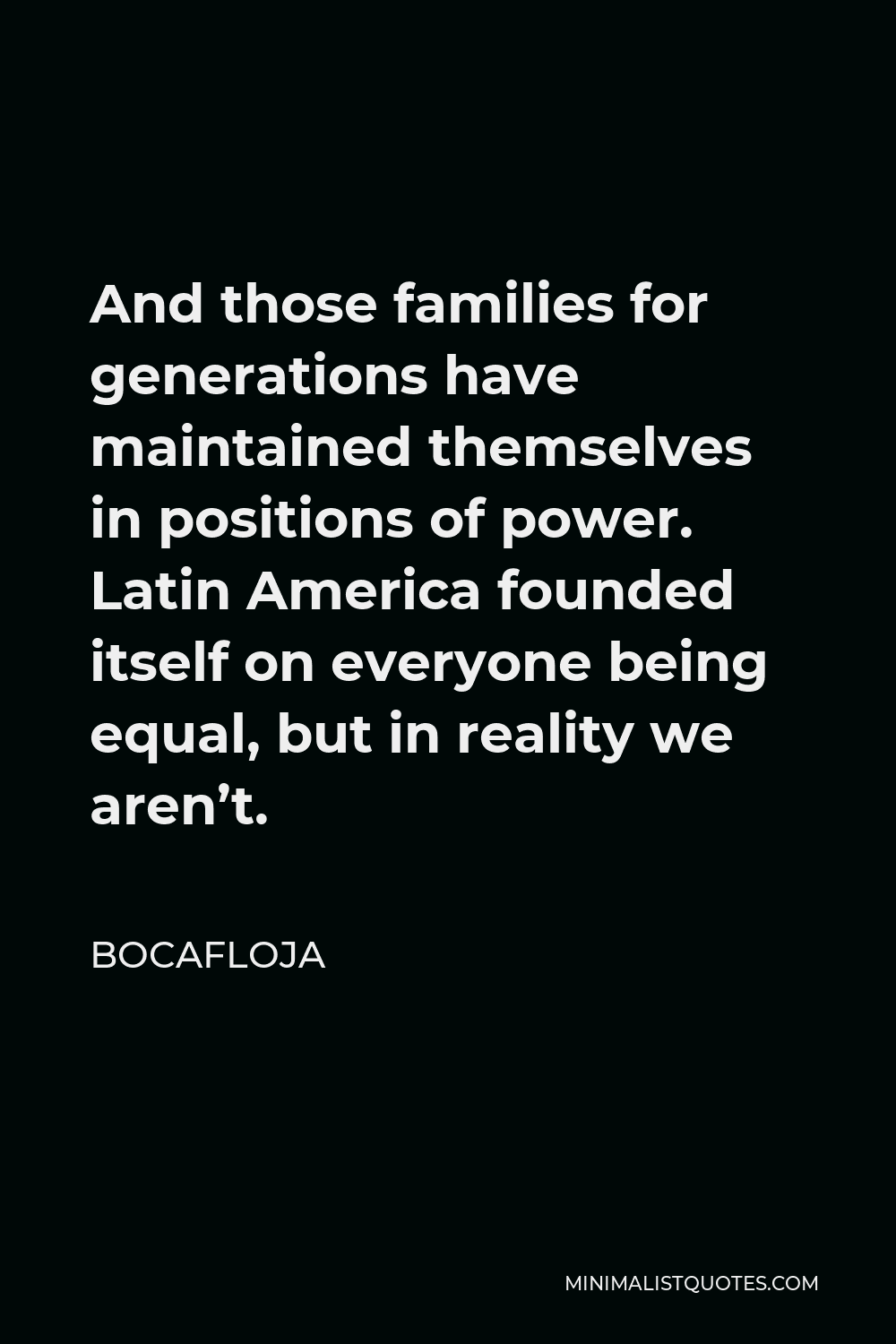
And those families for generations have maintained themselves in positions of power. Latin America founded itself on everyone being equal, but in reality we aren’t.
BOCAFLOJA -






There are situations in which a smile, a laugh, a greeting are racist exercises.
BOCAFLOJA -





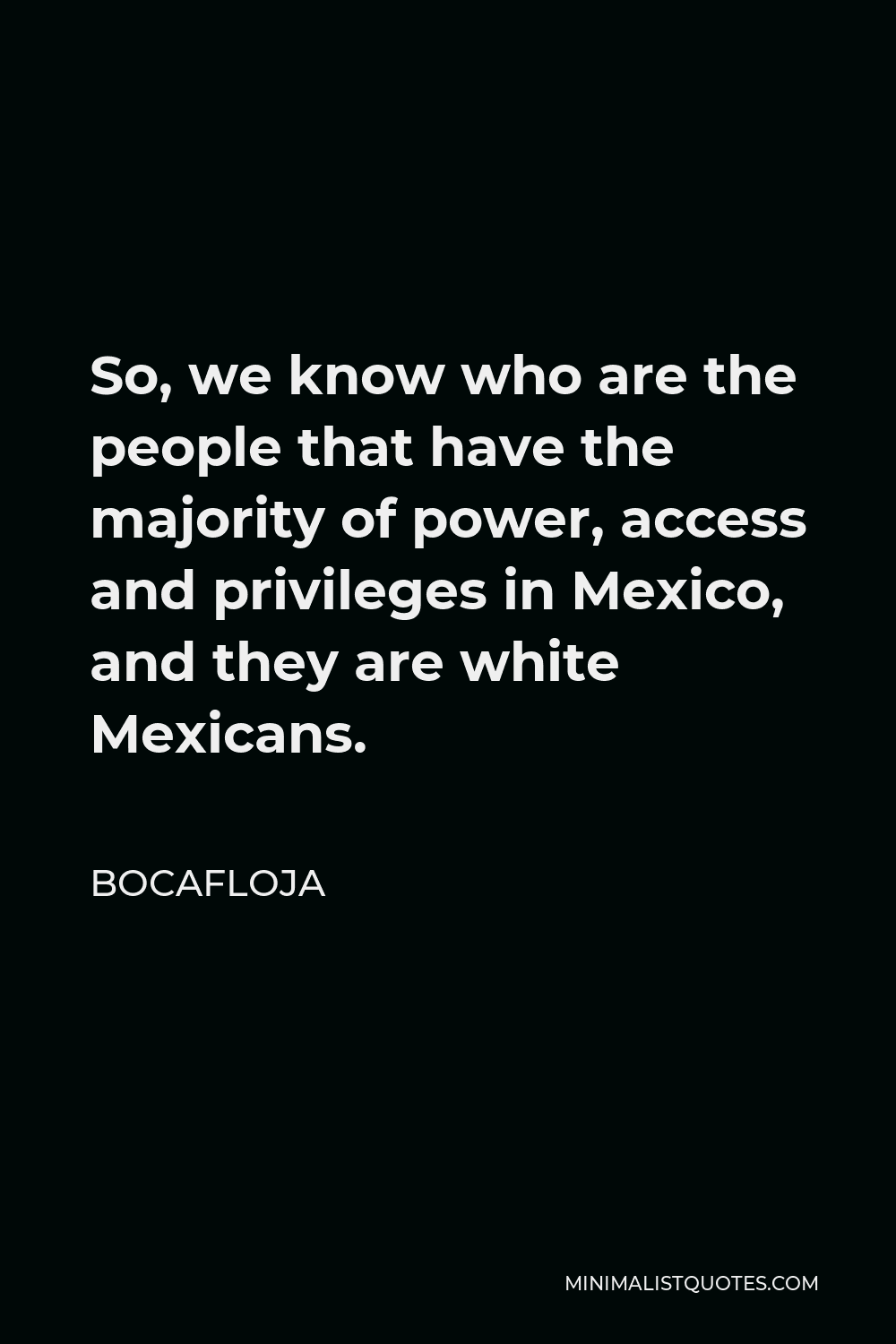
So, we know who are the people that have the majority of power, access and privileges in Mexico, and they are white Mexicans.
BOCAFLOJA -





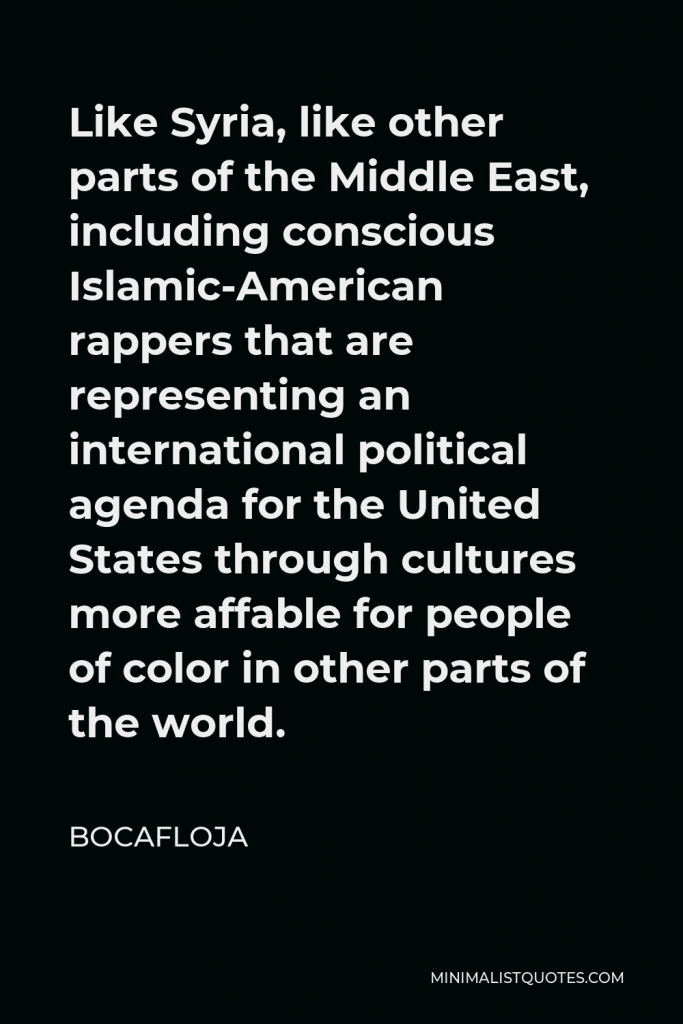

Like Syria, like other parts of the Middle East, including conscious Islamic-American rappers that are representing an international political agenda for the United States through cultures more affable for people of color in other parts of the world.
BOCAFLOJA -






I believe gangsta rap, as such, in its foundation is simply anti-systemic and transgressive.
BOCAFLOJA -





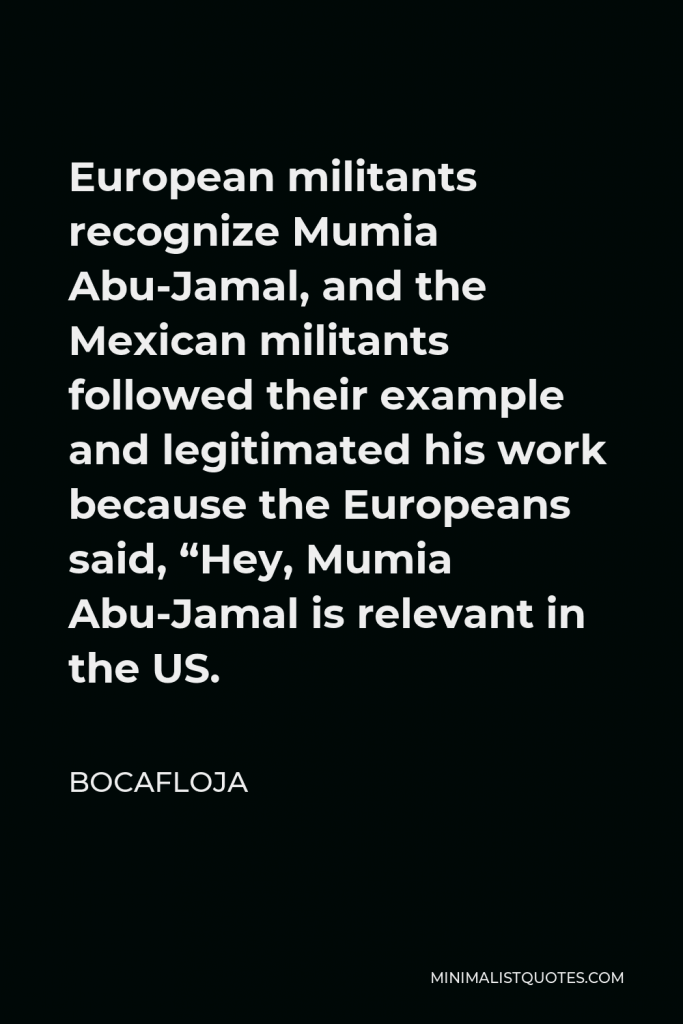

European militants recognize Mumia Abu-Jamal, and the Mexican militants followed their example and legitimated his work because the Europeans said, “Hey, Mumia Abu-Jamal is relevant in the US.
BOCAFLOJA






